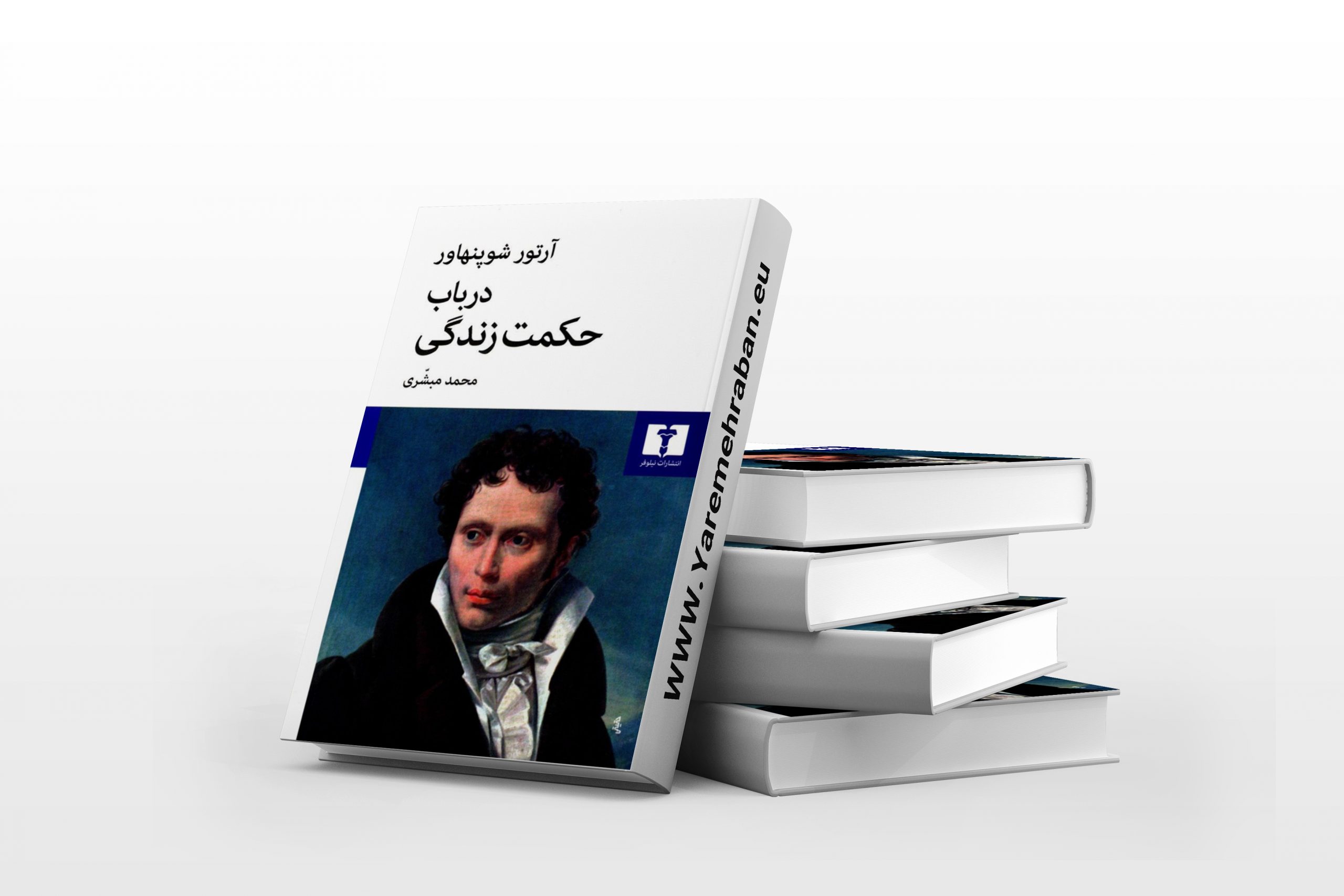Description
Introducing the book The Wisdom of Life: Being the First Part by Arthur Schopenhauer
On the Wisdom of Life is a work by Arthur Schopenhauer, first published in 1851. Schopenhauer, one of the leading philosophers of the nineteenth century, believed that human actions arise not from logic but from the will, or the blind and irrational desire of man to survive.
This fascinating collection of Schopenhauer’s in-depth sentences on religion, ethics, politics, women, and many other topics in general deals with the wisdom of life and gives instructive lessons to the audience. This great philosopher depicts humanity trapped in a struggle between good and evil, and emphasizes the complete freedom of man in a world in which art, morality, and self-awareness are the only means of salvation. This innovative approach had a profound effect on philosophy and art and inspired some of the ideas of Nietzsche and Wittgenstein.
Arthur Schopenhauer was born on February 22, 1788, in the city of Danzig. His parents were wealthy and belonged to powerful and influential families of their time. Because of his father’s particular lifestyle and beliefs about education, Schopenhauer became a friend in France at the age of nine to learn French.
Then in 1803 his parents took him to England and enrolled him in a boarding school for three months to learn English as well. He always had disagreements with his mother, Johanna Henriette, a relatively successful novelist. Despite growing up in a wealthy family, Schopenhauer has always despised the character of the rich in life.
Schopenhauer first began his university studies with a degree in medicine, but his interest in philosophy led him to take classes with the famous philosopher and official and Kant’s former disciple, Fichte. Schleiermacher was also a colleague of Fichte at the time, and Schopenhauer attended some of his classes and took detailed notes from their lectures.
Many of their views greatly disappointed Schopenhauer, but Fichte Rajab’s thought greatly influenced Schopenhauer’s mind on the nature of the will and the role of the will in cognition.
Schopenhauer submitted his doctoral dissertation, entitled On the Roots of the Four Principles of Sufficient Reason, to the University of Jena and entered the university to teach. In this book he shows how much he is influenced by the philosophy of Kant and Plato. Then, a few years later, he wrote his most important work, which included his pure philosophical apparatus and thought, a great work in the history of philosophy called the world as will and imagination.
Arthur Schopenhauer, after his most important work in the world, such as Will and Imagination, published a different collection called Appendices and Supplements, the last part of which is a separate book entitled The Wisdom of Life.
This is Schopenhauer’s most different work because the writing style of the book is such that understanding it does not require specialized familiarity with previous philosophical texts and philosophers, همین therefore it covers a wide range of readers.
Arthur Schopenhauer has always been portrayed as a negative philosopher in the history of philosophy. But the book on the wisdom of life offers a very important philosophy for having a happy life. Such a claim contradicts the ideas of a philosopher like Schopenhauer, who considers life to be full of suffering and impossible to achieve happiness.
For this reason, the question arises that why should a philosopher with this attitude write a book for human happiness?
To answer this question, Schopenhauer’s method of discussion and dialectic must be examined in this book, and it should be noted that he states in the introduction of the book that he deliberately distances himself from some of his philosophical principles and tries to address the issue of happiness in a normal individual position. Look.
However, in the first part of the book, Schopenhauer introduces three important factors that make up human life:
1. What we are: ورIt means the same human personality in the full sense such as health, strength, beauty, temperament, intelligence and…
2. What we have: wealth and property of any kind
3. What we do: It means what we think others are or what image others have of us.
Then, in the following chapters of the book, by describing and expanding each of these features and placing subjectivity (subjectivity) against objectivity (objectivity) and proving the superiority of subjectivity to objectivity, it proves to the readers that the most important factor of human happiness is the first feature. We are ”.
According to Schopenhauer, هستیم what we are more than what we have and what we do makes us happy. Because man always has his personality with him and all the pleasures depend on the person himself. In fact, the way we perceive and deal with the world around us and in a word, our pure mentality that determines our happiness.
Schopenhauer’s language in this book is very fluent and easy. Because Schopenhauer does not believe in rhetoric and the use of complex philosophical language, he considers it invalid and always tries to present the material in the most eloquent way. It should also be noted in the book on the wisdom of life that Schopenhauer sees the attainment of happiness in a negative way, that is, not trying to achieve as much happiness, wealth and fame as possible, but trying to strengthen the mind and stay away from evil as much as possible. .
The book on the wisdom of life has been translated by Mohammad Mobasheri and published by Niloufar Publications.
To get acquainted with Schopenhauer’s life, thoughts and philosophy, Patrick Gardiner’s book “Schopenhauer” translated by Reza Vali Yari, published by Markaz, is a very short and useful book.
Schopenhauer Bibliography:
The world as will and imagination, translated by Reza Vali Yari, published by Markaz
The root of the four principles of sufficient reason, translated by Reza Vali Yari, published by Markaz
On human nature, translated by Reza Vali Yari, published by Markaz
Accessories and accessories, translated by Reza Vali Yari, published by Markaz
The fundamental issue of ethics, translated by Reza Vali, Yari Publishing Center
On the Wisdom of Life, Mohammad Mobasheri, Niloufar Publications
Art is always right, translation of fixed mysticism, publication of Phoenix
Excerpts from the book on the wisdom of life (text pleasure)
The richer a person is internally, the more he empties others, and many of the things that satisfy ordinary people are superficial to him.
Wild people eat each other and civilized people deceive each other
:
Sentences from the book:
“Most people value the opinion of others the most, and they care more about what others think than what they think.”
“The richer a person is internally, the more he empties others, and many of the things that satisfy ordinary people are superficial to him.”
“The more material a person has inside, the less he demands from the outside, and the less others can offer him something. “Hence, a high level of consciousness leads to distance from society.”
1- Introducing the book The Wisdom of Life: Being the First Part on YouTube
2- Introducing the book The Wisdom of Life: Being the First Part in Aparat














Reviews
There are no reviews yet.